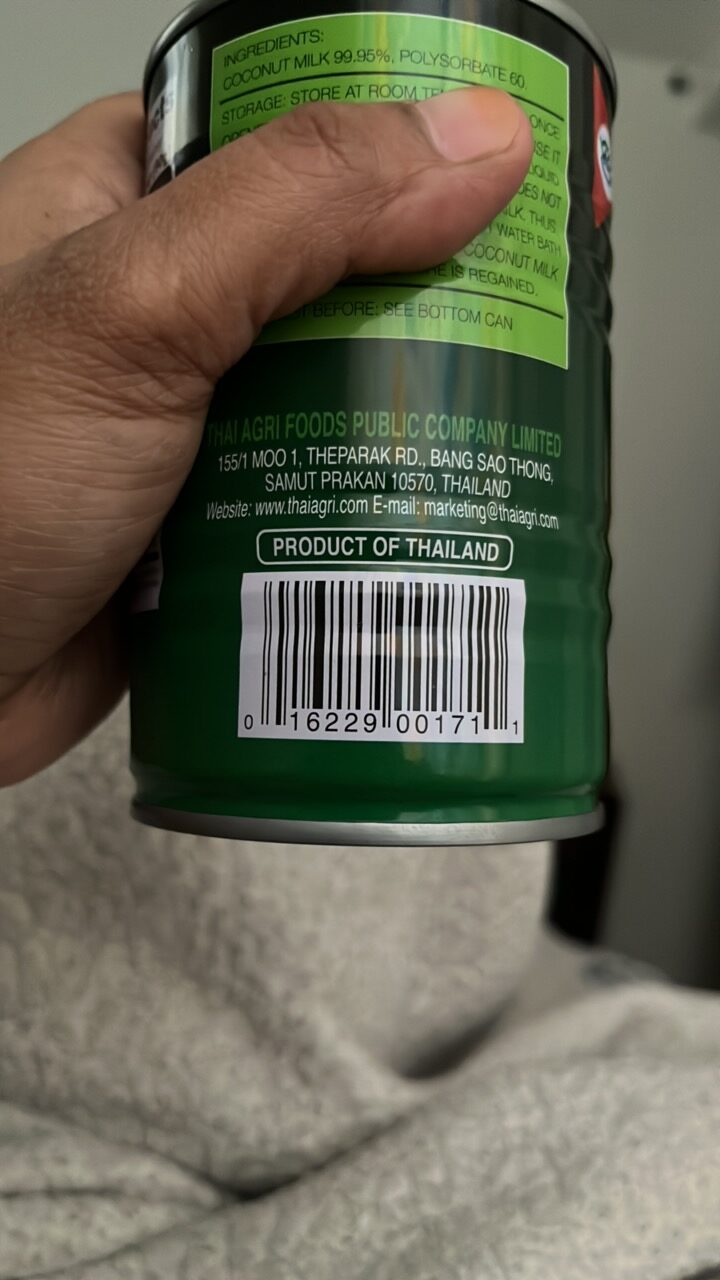
Barcode: 016229001711
coconut milk
HALAL
📝 Reason: The product ‘coconut milk’ contains ingredients that are generally recognized as Halal. Coconut milk is a natural product, and polysorbate 60, while synthetic, is not derived from Haram sources as per the provided information. No Haram ingredients or Ecodes were identified in the product.
🏷️ Category: Coconut Milk
📄 Certificates: Product Of Thailand, Vegetarisch, Vegan
Ingredients:
Details
Coconut Milk: An Insight into Its Halal Status
Coconut milk is a versatile ingredient widely used in various culinary traditions around the globe. As consumers become more discerning about dietary preferences, the question arises: Is coconut milk halal? In this post, we will explore the ingredients and the halal status of coconut milk, ensuring transparency for those who adhere to specific dietary laws.
What Makes Coconut Milk Halal?
The product ‘coconut milk’ is derived from the flesh of matured coconuts, and is recognized as halal. This natural product does not contain any harmful substances or ingredients derived from non-halal sources. Upon reviewing the ingredients list, we find:
- Coconut Milk: This naturally derived ingredient is generally recognized as halal and is a staple in many dishes across various cultures, especially in Asian cuisine.
- Polysorbate 60 (E435): A synthetic compound used as an emulsifier to improve the texture and shelf-life of products. It has a complex status, as it must be derived from halal sources, but in this case, it is not listed on any Haram Ecodes list.
Understanding E-Numbers and Ingredients
Let’s delve deeper into the specifics of the ingredients, highlighting their halal status:
- Coconut Milk: Natural and halal. This ingredient serves as the primary base for the product, carrying all the flavors and health benefits associated with coconuts.
- E435 (Polysorbate 60): While it is synthetic, it is not derived from haram sources, making it generally acceptable. The compound is suitable for food as it is safe for consumption.
It is essential to ensure that the polysorbate used is halal certified by checking the label or manufacturer details. Reputable manufacturers typically provide this information, particularly if they cater to a halal-conscious market.
Halal Certifications and Their Importance
The product has been certified as Vegetarisch and Vegan, which further assures consumers of its compliance with halal dietary laws. Certifications play a vital role as they serve as trustworthy endorsements of the product’s ingredients and their origins.
Conclusion: Is Coconut Milk Halal?
In conclusion, coconut milk is halal, being primarily composed of natural coconut, and supported by the presence of polysorbate 60, which does not break halal dietary laws according to the given information. As consumers become more conscious of their food choices and their implications on health and faith, products like coconut milk offer a versatile and safe alternative.
For anyone considering adding coconut milk to their diet, you can do so with confidence, knowing it adheres to halal standards. Whether you’re using it for cooking, baking, or in smoothies, coconut milk serves not just as a delicious option, but also as a halal-compliant choice.
